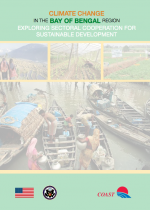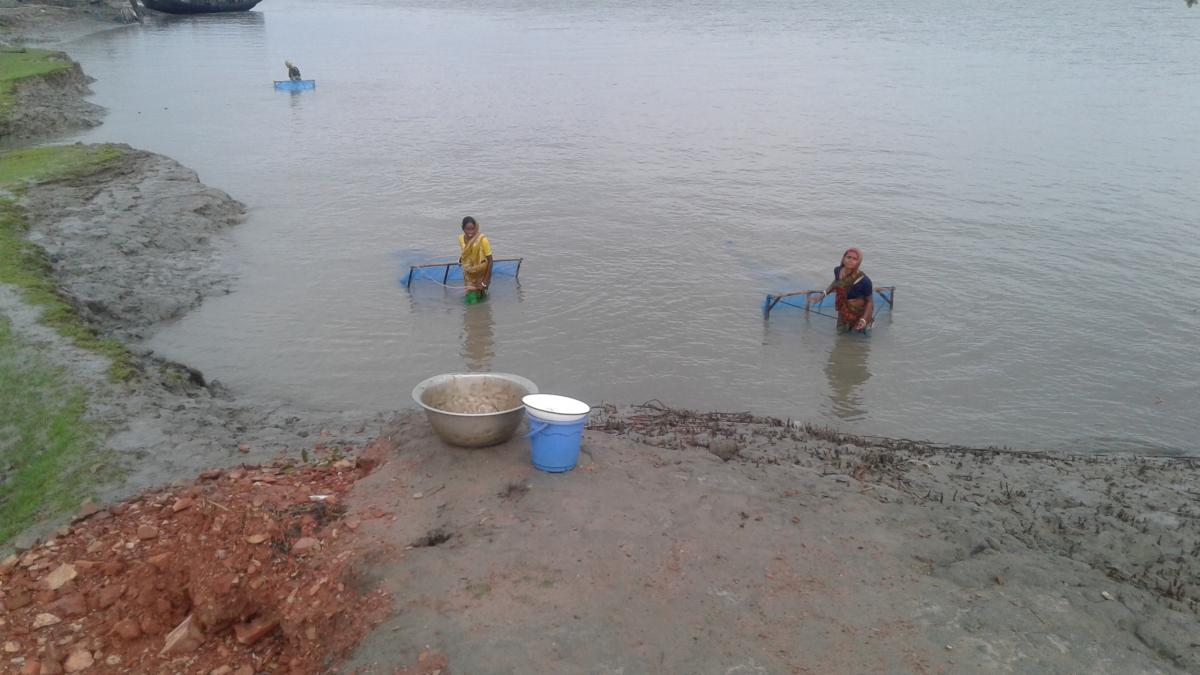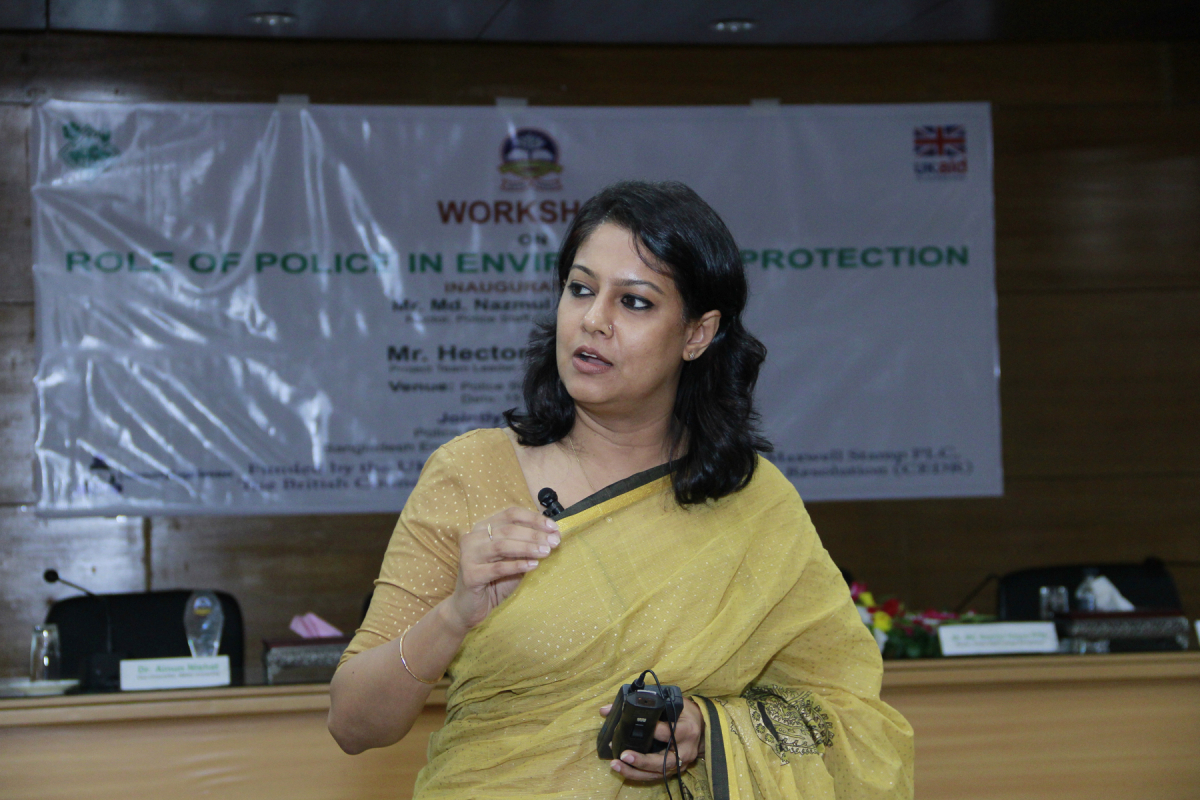Learnings on climate change adaptation in the Bay of Bengal documented in new book
Recently, seven climate change specialists from Bangladesh, Bhutan, Myanmar, India, Nepal, Sri Lanka and Thailand came together and wrote seven chapters for a book entitled Climate Change in the Bay of Bengal Region: Exploring Sectoral Cooperation for Sustainable Development.

Freshwater flow into the Sundarbans has drastically decreased due to farming, industrial and barrage developments; as a result increased salinity and siltation – the pollution of water by sediment – are threatening the ecosystem’s balance.
Photo: IUCN / Mizuki Murai
In their articles, they addressed the climate change impacts on their countries and described and evaluated both adaptation and mitigation approaches taken in each. They also outlined necessary actions to enhance regional cooperation and facilities in combating climate change impacts, and towards sustainable development in the Bay of Bengal region.
 Photo: © IUCN
Photo: © IUCN
The authors are US Exchange Program alumni and the book has been published by COAST Trust (an NGO in Bangladesh) with support from the United States Department of State.
Bangladesh is often called the ‘adaptation capital of the world’ because of its exciting progress as one of the most climate vulnerable countries of the world. Social, economic, political, and climatic systems are continuously changing at the national, regional and global levels. It is, therefore, important to keep the pace of climate change adaptation going by taking innovative steps and actions in relevant arenas. These areas could range from policy to finance to institutions to technology.
In the Bangladesh Chapter entitled ‘What Does Bangladesh Tell Us About Innovation In Climate Change Adaptation’, Haseeb Md. Irfanullah of IUCN Bangladesh has considered three related areas of climate change adaptation:
- Adaptation planning and implementation.
- Nature-based adaptation technology development and diffusion.
- Evolution in programmatic approach.
The chapter looked into major developments in these areas between 2006 and mid-2016 through an 'innovation lens'. The author considered 2006 as the base year because Bangladesh prepared the National Adaptation Programme of Action (NAPA) in 2005 – the first ever strategic document in Bangladesh to make climate change adaptation an organised effort.
The article drew examples from the communities on Bangladesh’s coast and explains the adaptation approaches followed, the opportunities created by them, and their impacts on the people and nature. It further discussed the challenges faced by innovations in adaptation and how those could be transformed into opportunities.
The paper advocates evaluation of adaptation innovations, before and after scaling up, to avoid maladaptation. It emphasises knowledge generation and management as a key component of adaptation projects for informed decision-making. It argues that such initiatives should have a 'monitoring, learning and evaluation system' built within them – a useful approach strengthened under the Mangroves for the Future initiative.
Such an arrangement can help to create a dynamic environment for projects to harness innovation at individual, institutional, and policy levels, and at the same time make them more effective.
Mangroves for the Future (MFF) is a partnership-based regional initiative which promotes investment in coastal ecosystem conservation for sustainable development. MFF focuses on the role that healthy, well-managed coastal ecosystems play in building the resilience of ecosystem-dependent coastal communities in Bangladesh, Cambodia, India, Indonesia, Maldives, Myanmar, Pakistan, Seychelles, Sri Lanka, Thailand and Viet Nam. The initiative uses mangroves as a flagship ecosystem, but MFF is inclusive of all types of coastal ecosystem, such as coral reefs, estuaries, lagoons, sandy beaches, sea grasses and wetlands. MFF is co-chaired by IUCN and UNDP, and is funded by Danida, Norad, and Sida and the Royal Norwegian Embassy in Thailand.



